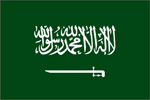 Bloomberg: Saudi Arabia refused to accept the membership of the United Nations Security Council it won yesterday, citing issues including Syria’s civil war that it said show the world body is incapable of resolving conflicts.
Bloomberg: Saudi Arabia refused to accept the membership of the United Nations Security Council it won yesterday, citing issues including Syria’s civil war that it said show the world body is incapable of resolving conflicts.
Bloomberg
By Caroline Alexander & Sangwon Yoon
 Saudi Arabia refused to accept the membership of the United Nations Security Council it won yesterday, citing issues including Syria’s civil war that it said show the world body is incapable of resolving conflicts.
Saudi Arabia refused to accept the membership of the United Nations Security Council it won yesterday, citing issues including Syria’s civil war that it said show the world body is incapable of resolving conflicts.
The council’s “style, working mechanisms and double standards” prevent it from ending the turmoil in Syria and the Israeli-Palestinian conflict, the Saudi Foreign Ministry said in a statement on the state-run Saudi Press Agency. The body has also failed to rid the Middle East of weapons of mass destruction and nuclear arms programs, it said.
The world’s biggest oil exporter becomes the first UN member-state to reject the chance to fill one of 10 non-permanent seats on the 15-nation council. The kingdom’s unprecedented move comes amid its heightened concerns over signs of a thaw in relations between the U.S., an ally, and regional rival Iran. Saudi Arabia has repeatedly called for international action against Syrian President Bashar al-Assad and opposes Iran’s nuclear program.
The Saudi move is a “startling gesture,” said Richard Gowan, associate director of New York University’s Center on International Cooperation. “If the Saudis joined the council, they would face huge pressure to support American efforts to forge a compromise peace deal for Syria,” Gowan said in an e-mail. “They may find it more comfortable to stay outside and criticize the process.”
Emergency Election
UN Secretary-General Ban Ki-moon said he has not received any official notification from the Saudi government.
Iran and world powers this week held two days of talks on the Persian Gulf nation’s nuclear program, negotiations described by diplomats present as the most-detailed ever. Iranian President Hassan Rouhani and this U.S. counterpart Barack Obama spoke by phone last month, the highest level contact between leaders of the two countries since the 1979 Islamic Revolution.
The General Assembly, the UN’s main deliberative body representing 193 countries, votes every year by secret ballot to fill the seats for non-permanent members. The council’s rotating members, who sit for two years, don’t have a veto on its decisions, which is reserved for the five permanent members.
An emergency election would need to take place as soon as possible for a replacement country to represent the African-Asian regional group, Afaf Konja, spokeswoman for the UN General Assembly’s president, said by phone. The group will need to nominate a new candidate and hold elections before Dec. 31 to ensure that it’s represented, Konja said.
Chemical Inspections
“It is imperative that the election takes place before the new term begins so that the Security Council maintains its neutrality and represents all regional groups,” she said, adding that the council will have to operate with an empty seat if no race is held in time.
Power in the Security Council, whose support is needed for the strongest UN actions, such as imposing economic sanctions or mandating armed interventions, rests with the five permanent members: the U.S., France, U.K., Russia and China.
The rotating members can approve or reject other Security Council decisions, and are often relied on by the P-5 to build consensus with other states to resolve regional issues.
China and Russia have used their vetoes on the Security Council to block measures targeting Assad’s government. Even so, the world body has authorized chemical weapons inspectors to visit sites in Syria after the Security Council resolved last month to rid the country of its stockpile on the back of deal brokered by Russia.
Kerry Meeting
The Saudi kingdom was to replace Pakistan, whose two-year term ends on Dec. 31. It would have been its first time serving on the council since joining the UN in 1945. The Saudi Foreign Ministry said it wouldn’t consider taking a seat until reforms were introduced, without providing details.
Saudi Foreign Minister Prince Saud al-Faisal canceled a speech to the General Assembly last month. U.S. Secretary of State John Kerry is scheduled to meet al-Faisal during a trip to Paris next week. The Saudis have signaled concern the U.S. won’t be tough enough in negotiations aimed at Iran’s nuclear program that the West says is aimed at producing atomic weapons.


